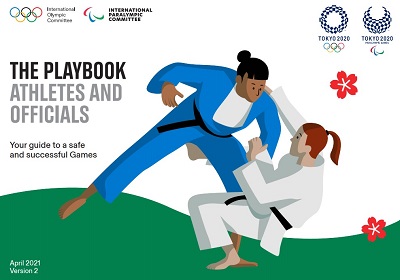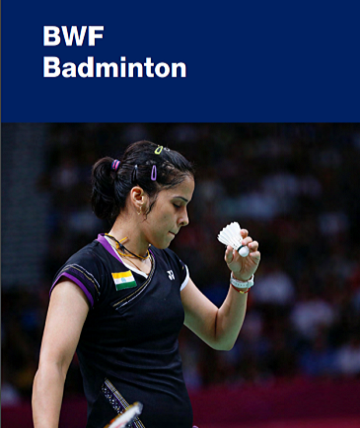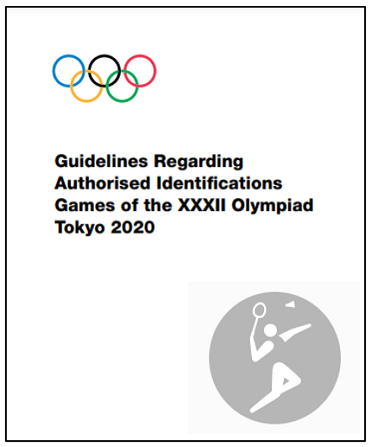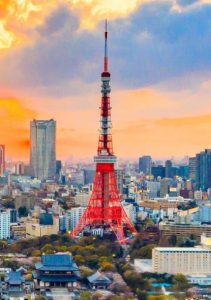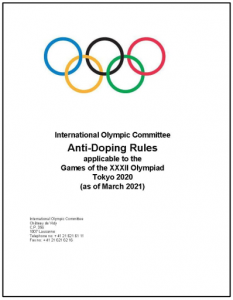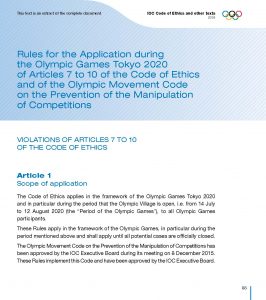Tokyo 2020 Olympic Games
Tokyo 2020 Olympic Games Opening Ceremony will take place at the National Stadium in Tokyo on 23 July 2021.
This will be a very different Games because of Covid-19. This page provides information on guidelines and rules related to your participation in the Olympic Games. For qualification regulations, see Section 5.4.1 of the BWF Statutes (linked here) – see 5.4.1.1, 5.4.1.2 and 5.4.1.3 on qualification.
Playbook for Athletes and Officials – COVID-19 Protocols
In February, Tokyo 2020 organisers, IOC and IPC published The Playbook – a guide to a safe and successful Games (linked here). The next edition is expected to be released before the end of April. Please look at the PLAYBOOK for ATHLETES AND OFFICIALS version 2 – 28 April 2021.
Tokyo 2020 – will be a different Games experience compared to others Olympics.
Health and Safety – a key priority for athletes, team members, the workforce and volunteers.
Covid-19 Protocols – in all Olympic venues, hotels, transport. A Games participant ‘bubble’.
Covid-19 Tests – part of your experience.
Your Health Status – understand your own health status / are you more at risk? See these for more information (World Health Organisation – WHO or your national health authority. You could also look at the UK’s National Health Service (NHS) or the USA’s Centre for Disease Control (CDC).
Your trip – Find out what are the requirements to leave / arrive back in your home country.
Tokyo Preparation – this starts 14 days before departure / register on the Tokyo 2020 health App / monitor your health.
What is Rule 50?
Rule 50 of the Olympic Charter has prohibits commercial installations and advertising signs in Olympic sites. Rule 50 also states that “No kind of demonstration or political, religious or racial propaganda is permitted in any Olympic sites, venues or other areas”.
There are four aims of Rule 50 are to:
- protect athletes
- prevent the over-commercialisation of the Games and to keep the Olympic venues free from advertising (for example the field of play). This is known as the “clean venue” policy.
- prevent the Games from being used as a platform for protests, demonstrations or the promotion of political, religious or racial propaganda.
- define the rules for manufacturers’ identifications and other identifying features on sports uniforms and equipment, to prevent unauthorised commercial, political, religious or racial propaganda
Guidelines Regarding Authorised Identification
At the Olympic Games, there are strict guidelines that apply to advertising on uniforms and equipment. This is part of Rule 50 of the Olympic Charter. The number of brands and the size of these on your uniform and equipment is strictly controlled. See the guidelines below – 1) Visual guide for Badminton, 2) Detailed Summary for Badminton athletes, 3) General Guidelines.
Period of Stay
There are strict rules for when you can arrive and depart. Here is a brief guide, but make sure you talk to your NOC about your travel plan.
Badminton competition – 24 July – 2 August 2021
Training Starts – from 17 July 2021
Arrival – the general guidelines is that you arrive 5 days before the start of the Badminton Competition however you can arrive up to 2 days earlier if you meet these conditions:
- Participants may however arrive one day earlier (travel day) than training starts to ensure 5 full training days.
- Participants arriving from time zones of 6+ hour time or temperature and humidity difference may request an additional acclimatization day. There will be no additional exceptions for time zone or acclimatization
Departure – 48 hours after athletes last event or elimination from competition.
Exemption – NOCs can ask for exemptions for badminton athletes to stay on after they are knocked out so they can be training / sparring partners for other badminton players from the same NOC who are still competing. As soon as they are knocked out, then you must leave within 48 hours.
IOC Anti-Doping Rules
Read, understand and follow the Anti-Doping Rules applicable to the Games of the XXXII Olympiad Tokyo 2020 (linked here). See the letter from the IOC (linked here).
A few key points are:
Whereabouts Information – see Article 5.6 – athletes must provide enough details so doping control officers know where you are – for example – block and room number in the Village, place of training, times of training, competition days and session times. Information must be provided for your whole stay at the Games until you depart.
Doping control / sample collection – for the whole period of the Olympic Games (opening of the Athletes’ Village to the day of the Closing Ceremony (13 July to 8 August 2021).
Testing – Athletes can be tested at any time, in any location at the Games.
Therapeutic Use Exemptions (for medications)- Use ADAMS to apply for TUEs.
CAS-ADD – At the Games, the Anti-Doping Division of the Court of Arbitration for Sport will be on site in Tokyo to make decisions on any Anti-Doping Rule violations.
Rules on the Prevention of the Manipulation of Competitions
The IOC Code of Ethics prohibits all accredited persons at the Olympic Games from betting on Olympic events. Furthermore, all participants have an obligation to report any approach or suspicion of manipulation.
See articles 7 to 10 of the IOC Code of Ethics. Here are articles 9 and 10:
Article 9 – All forms of participation in, or support for betting related to the Olympic Games, and all forms of promotion of betting related to the Olympic Games are prohibited.
Article 10 – Participants in the Olympic Games must not, by any manner whatsoever, manipulate the course or result of a competition, or any part thereof, in a manner contrary to sporting ethics, infringe the principle of fair play or show unsporting conduct.
Rules related to the Prevention of Competition Manipulation at Tokyo 2020.
See more information on the prevention of competition manipulation on the IOC website.


















